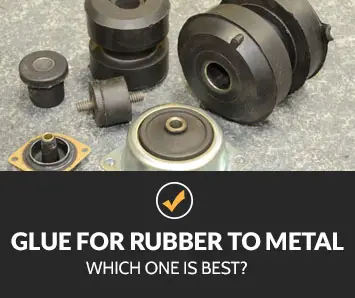When bonding two things together of different material structures, things can get rather tricky. This is especially true if attempting to glue together something rigid like metal to something with a bit of flexibility like rubber. Fortunately, many brands have formulated specialized glue to suit this type of complex bonding. Here are our favorite options for the best glue for rubber to metal bonding.
| Image | Product | Features | Price |
Best Overall1 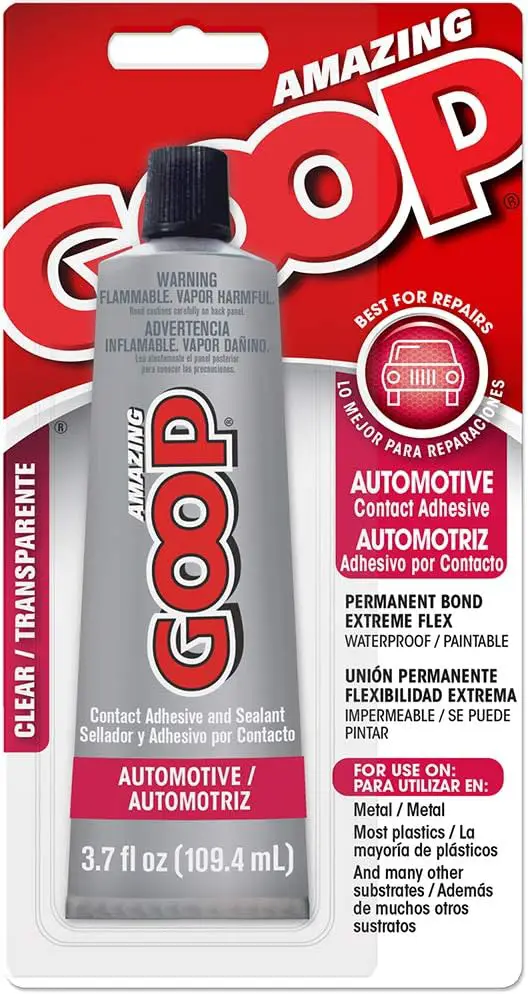 | Amazing Goop 160012 Automotive Adhesive | * Strong | |
Best Waterproof Adhesive2 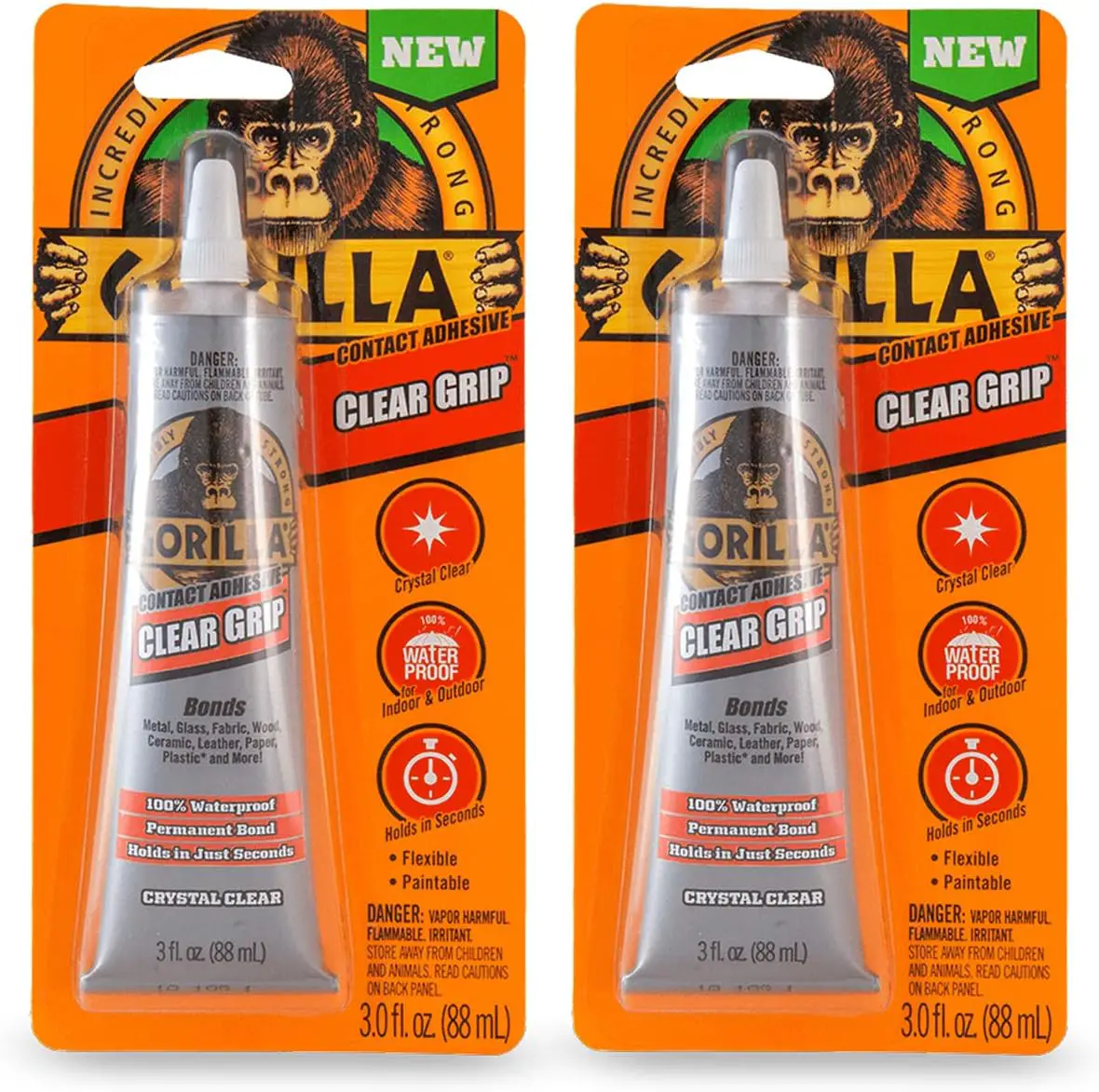 | Gorilla Clear Grip Adhesive | * No clamping needed | |
3 | Permatex 81158 Black Silicone Adhesive Sealant | * No-mess tip | |
4 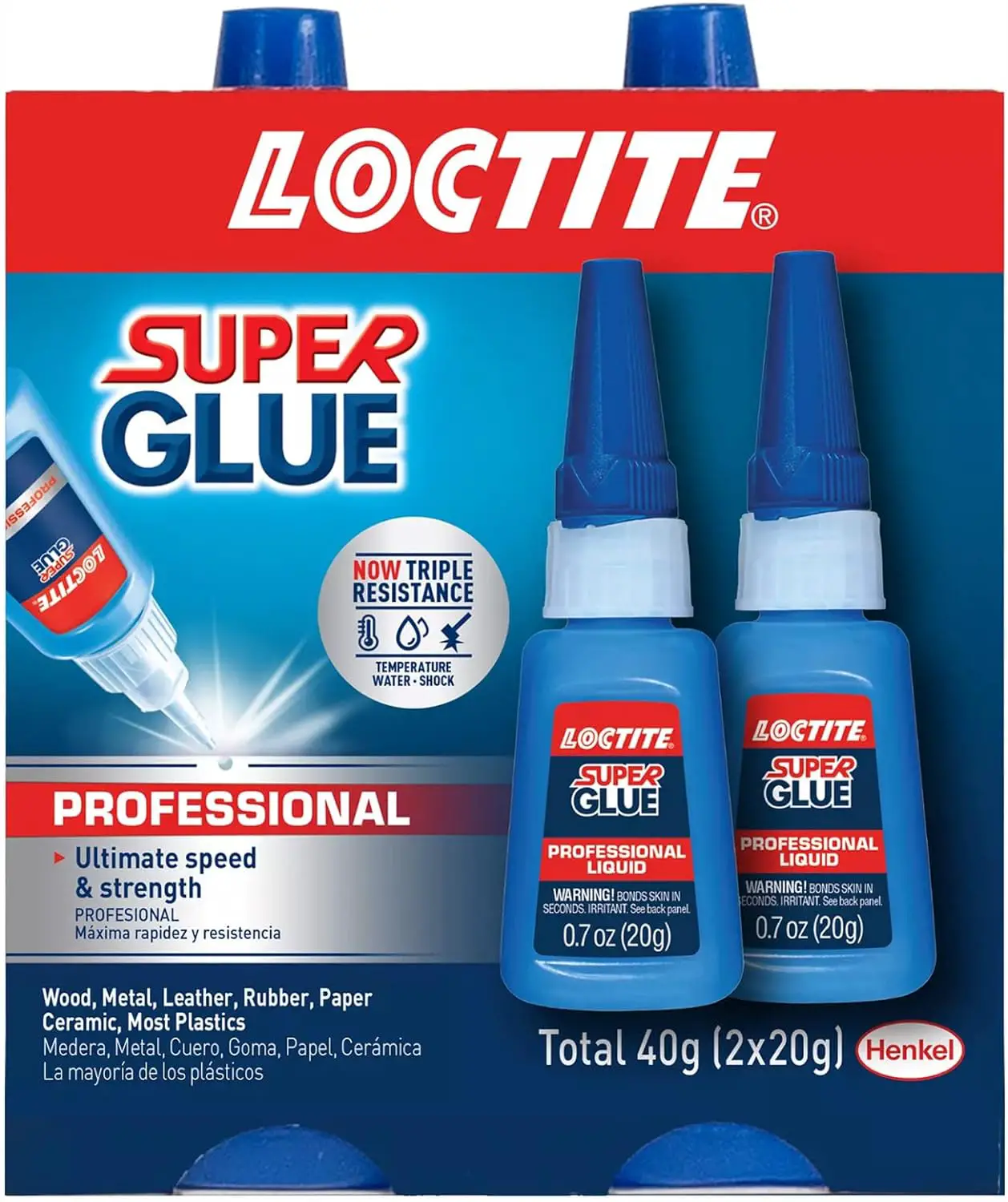 | Loctite Liquid Professional Super Glue | * Easy to use | |
5 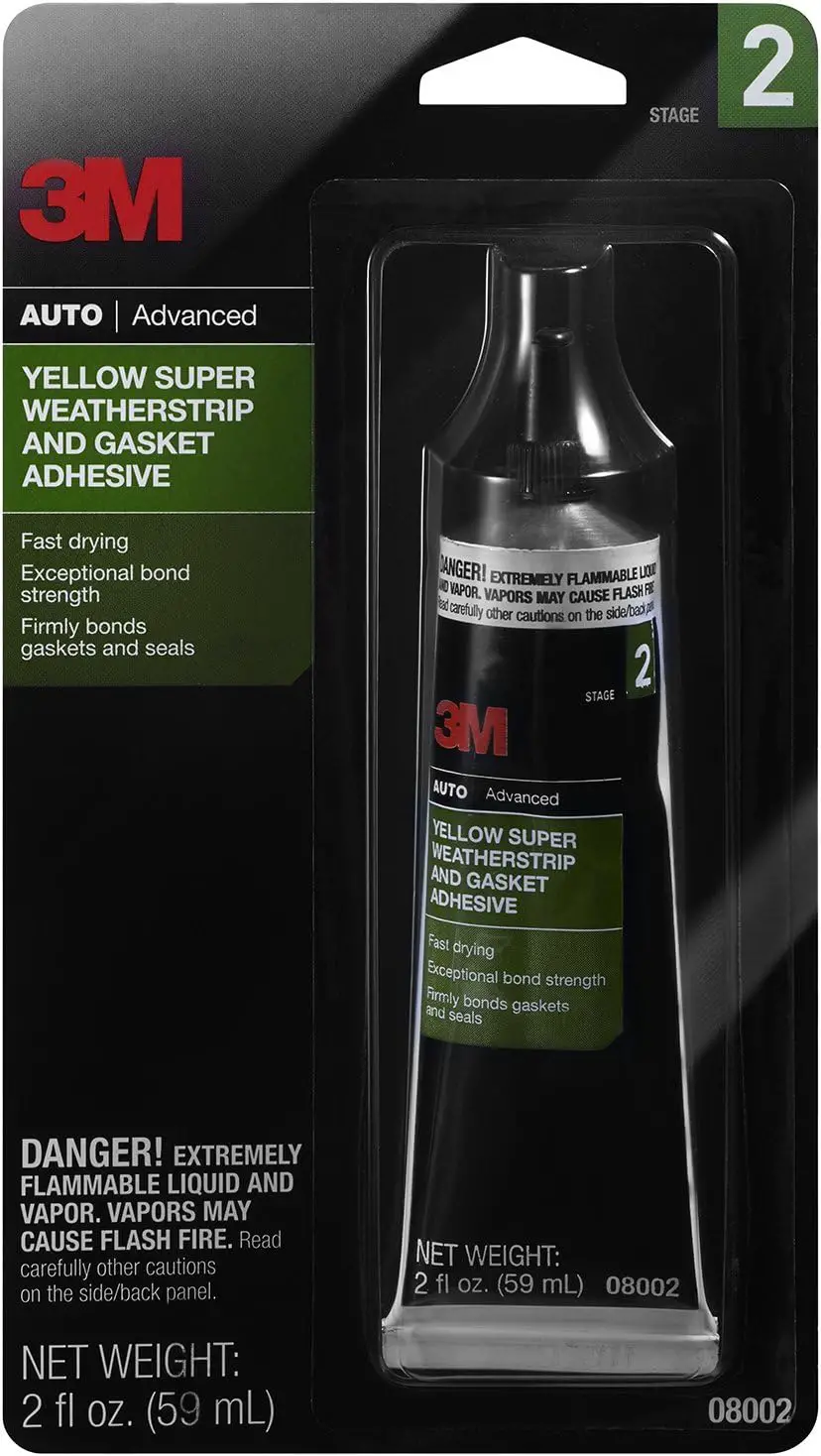 | 3M Super Weatherstrip and Gasket Adhesive | * Affordable | |
6 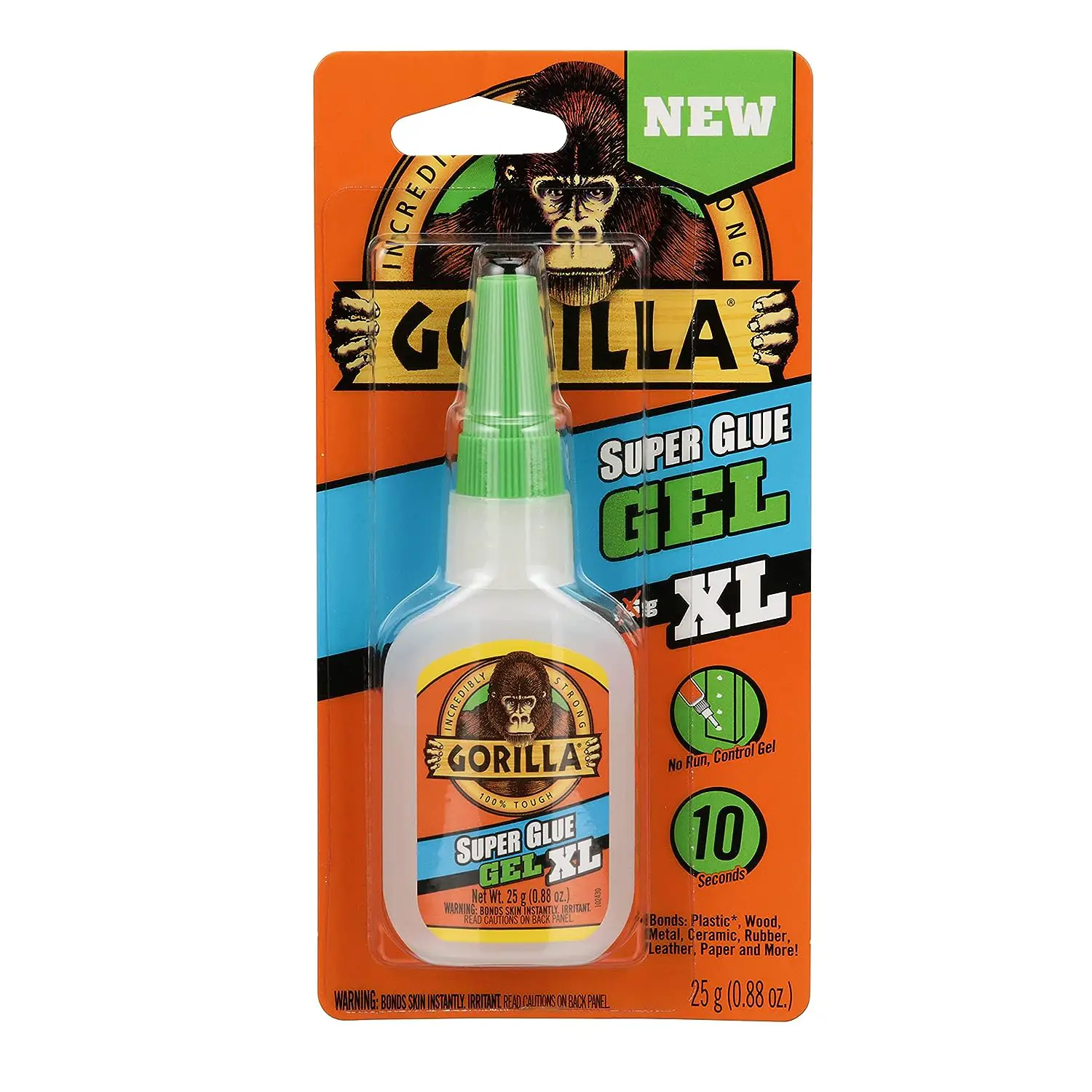 | Gorilla Super Glue Gel | * Unique rubber particle formula | |
7 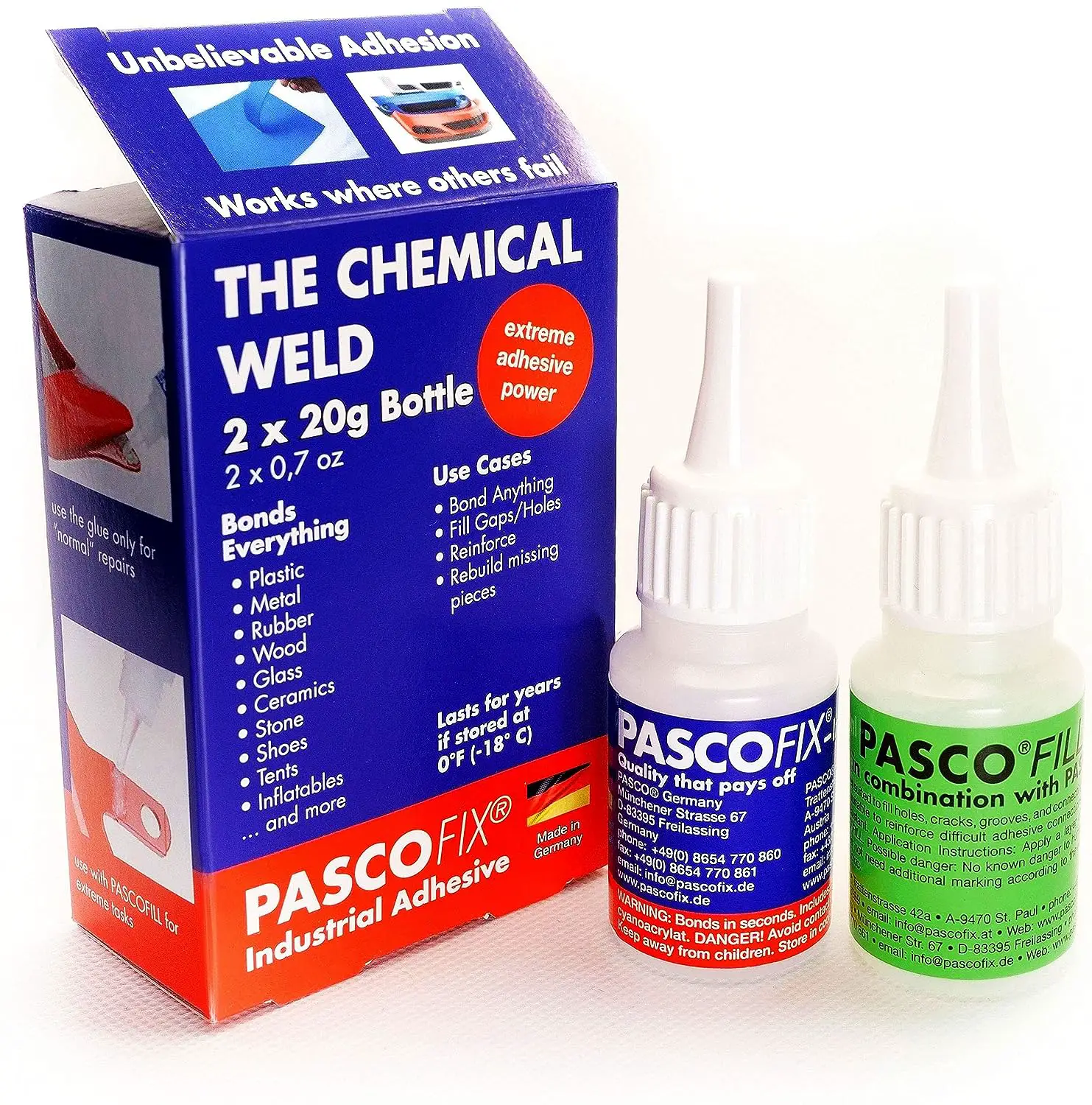 | Pasco Strongest Glue for All Materials | * Very effective bond |

When bonding rubber to metal, you ideally want a glue that will create a tough, longlasting bond while still accommodating for the flex and potential movement of the rubber. Amazing GOOP Automotive Adhesive does this wonderfully, securing rubber pieces in place on smooth metal surfaces without creating potential bond failure scenarios through rigidity.
The brand claims that their product is more effective than even silicone for battery terminals against corrosion, sealing windshields, and sealing headlights and that the glue is strong enough to hold screws in place, seal hoses, and repair vinyl seats, among other tasks.
It can even be used to insulate electrical wiring due to its level of curing and bond. As a sealant for internal and external automotive components, you can trust that the bond created will be a lasting, effective one.
The no-mess tip makes it easy to apply this product precisely where you want it to be placed and makes the clean-up after bonding much less intensive. Additionally, it is heat resistant and all-around excellent for use in a wide range of automotive situations.
If you need a lasting bond that will keep a piece of rubber in place indefinitely in automotive applications or otherwise, this is a solid choice and definitely worth the overall top pick title!
Features:
* Durable Bondu
* No-Mess Tip
* Heat Resistant
Glue For Rubber to Metal – Buying Guide
When selecting a glue to use for rubber to metal bonding, you want something that will work without much mess and fuss but there are other factors to consider. Let’s look over what makes a product one of the best rubber to metal bond products.
Types of Glue for Rubber to Metal
The best glue for bonding rubber to metal your number one choice is a cyanoacrylate-based adhesive. There are many reasons why this is considered the best glue for bonding rubber to metal. One of the reasons why this type of glue is the preferred choice is due to its high bonding strength. In terms of, in terms of impactors instance, this is one of the strongest glues out there. It’s strong, it’s permanent, and it is extremely durable.
OK, so for all of you people that actually don’t know this, this type of glue, the name we have used here, is actually the technical name for super glue, also known as crazy glue. Yes, folks, that is right, if you’re looking to bond rubber to metal, your best choice is super glue.
Moreover, there is also the fact that this type of glue is ideal in terms of thermal stability, or in other words, it resists temperatures very well. Extreme hot and extreme cold will not really affect how strong this glue ends up being. In the grand scheme of things, when it comes to being waterproof, UV resistant, durable, impact resistant, and more, this is one of the very best choices out there. And this is true whether you’re gluing rubber to metal or rubber to any other surface.
How to Glue Rubber to Metal
When gluing rubber to metal, there are a few things to keep in mind, mainly concerning the integrity of the rubber material and the grit of the metal. To add a bit of grip, try lightly sanding the metal surface so the glue has a better surface to hold onto. From there, you should lightly wipe down the surface to remove dirt and dust that could interfere with the contact of the two pieces.
Select one of the specifically designated rubber to metal bonding adhesives and carefully apply a bit to each piece. Stick the rubber and metal together and hold it or clamp it in place until it has stuck fully.
How to Glue Silicone Rubber to Metal
Silicone rubber has a very smooth surface, making it extra tricky to fully connect with the metal. To attach these two items, follow the same basic directions in regards to prepping the surfaces but take extra care to select an epoxy rubber to metal bonding agent. This will help create a very strong bond despite the very smooth and slick surface area.
How to Glue Rubber to Aluminium
Again, the process is very similar. Due to aluminum’s structural nature, it is important to wash the area to be glued with mild soap and water, rinsing well. From there, lightly sand the aluminum then clean it again and apply the epoxy glue as you normally would.
Why is Rubber So Hard to Glue?
Rubber is a widely used product and, due to this, the specific makeup of each piece varies. Some have slippery agents, some have chemical additives to preserve color or shape. You may get one piece of rubber that is very flexible and another that is so stiff you cannot easily bend it. This means that when you order rubber as someone with no knowledge of what exactly is inside of the piece on a molecular level, you do not know exactly what you are getting.
This means that glue for rubber and other similar surfaces will have to be able to create a holding area via slight abrasion. Otherwise, the glue simply would not be able to hold onto the slick area and would not create a bond strong enough to be productive or effective.
Where to Use Glue for Rubber to Metal
Something else you might be wondering here is for what sort of applications you might use glue to bond rubber to metal. Well, one of the main applications that this might be used for is in the automotive industry.
For instance, if you have to adhere a piece of rubber to your metal car frame, then this type of glue is something that you would use. This type of glue can also be used if you’re gluing rubber to metal for the purposes of arts and crafts, for home repairs, or for any other such purpose. Remember folks, Cool is a very versatile thing, one that can play replacement screws and nails.
The Best Glue for Rubber to Metal
There are a lot of different fantastic rubber to metal bonding glues on the market. These were selected due to their high reviews, pricing, and effectiveness. Any of these would be a fantastic choice that would serve most projects well. Let’s look at the benefits and pitfalls of each and what real-life reviewers have said about the formulas.
Glue For Rubber to Metal FAQ
Will silicon stick to metal?
With a bit of work, silicon can easily stick to metal. Silicon is a rather slippery and notoriously hard to glue item to work with. Fortunately, if you select a glue specifically designed for such a surface and work to sand the metal a bit first to create an abrasive surface, you should be all set.
What kind of glue works on metal?
Generally, epoxy glues are your best bet when working with metal. The glue can stick to the smoother surface of the metal without sliding around or otherwise creating air pockets that will cause the bond to break down in the future due to regular usage and exposure. Some other adhesives work well but by far, epoxy glue are the top option when working with metal.
Does hot glue work on rubber?
Hot glue is not the best choice for working with rubber. If the glue is too hot, it can actually melt lower quality rubbers or those with a lot of additives. Additionally, hot glue typically has difficulty attaching to very smooth surfaces since it dries in a rapid nature and cannot penetrate the surface of the smoothed zone. Lastly, hot glue bonds often do not act as permanent attachments. If you want a long-lasting bond, there are many better options available
Does super glue work on rubber?
Yes. Super glue is generally thin enough that it can permeate the surface of the rubber and create an abrasive enough surface for the bonding to occur. Stronger glue may work a bit better but for most general applications, super glue will work just fine.
Conclusion
When working with metal and rubber, adhesives can be tricky. Smooth surfaces are notably difficult to glue and can form bonds that degrade over time. Fortunately, there are plenty of options on the market that will provide a lasting, strong adhesion!

